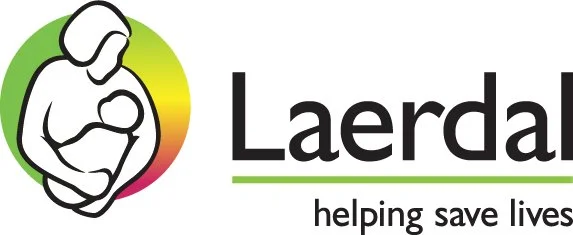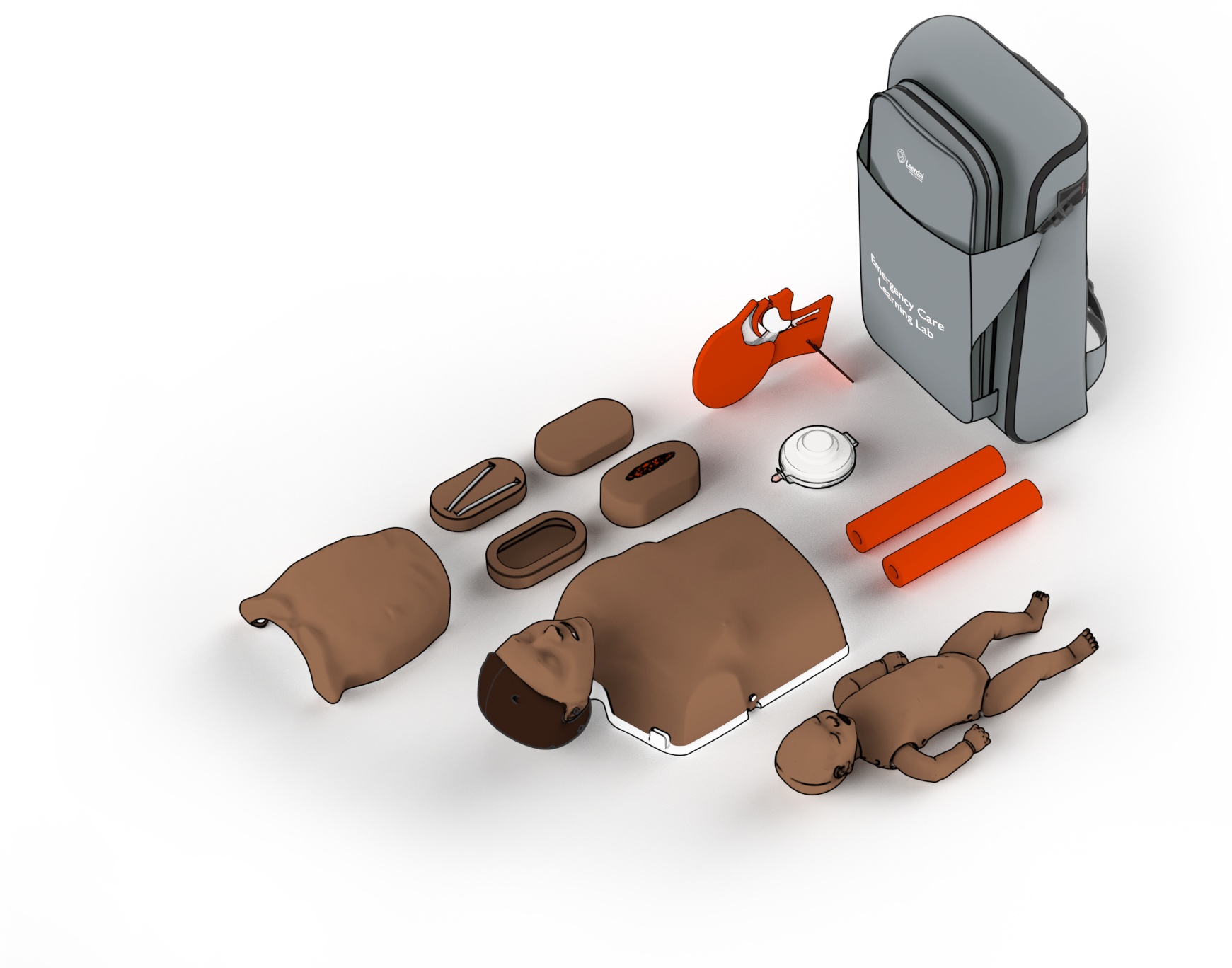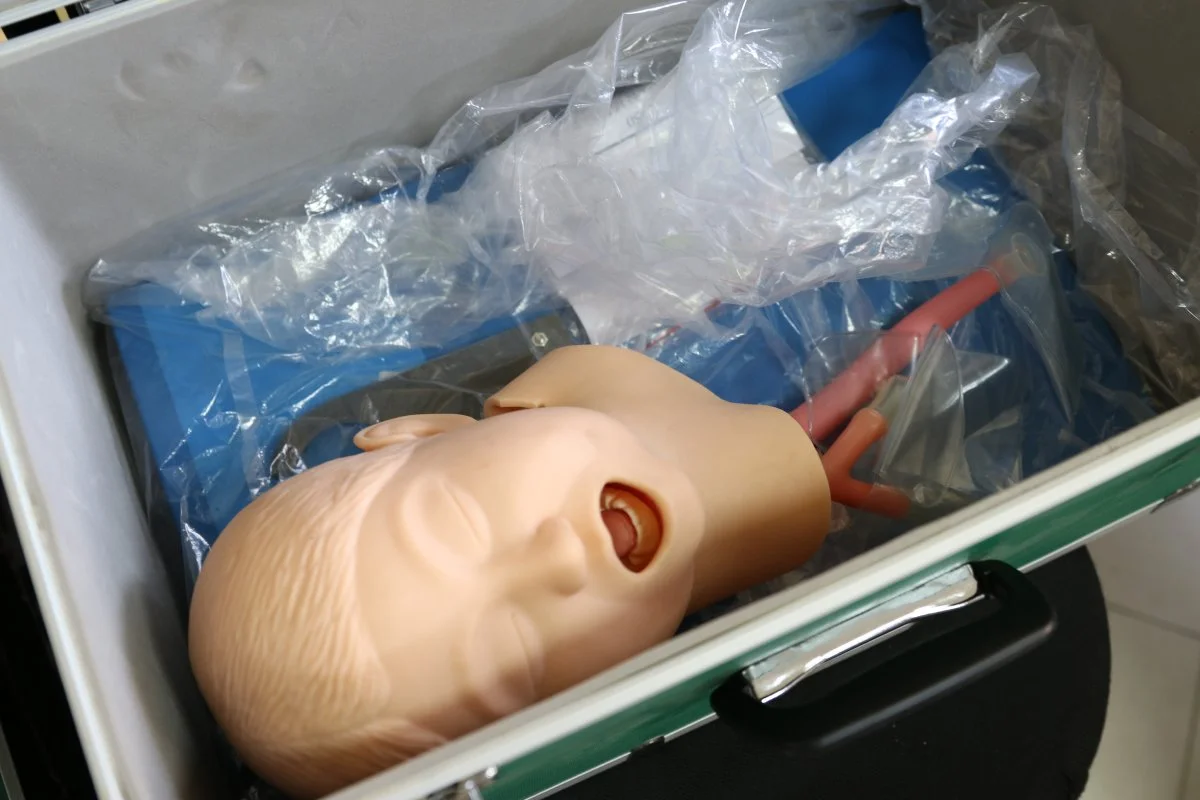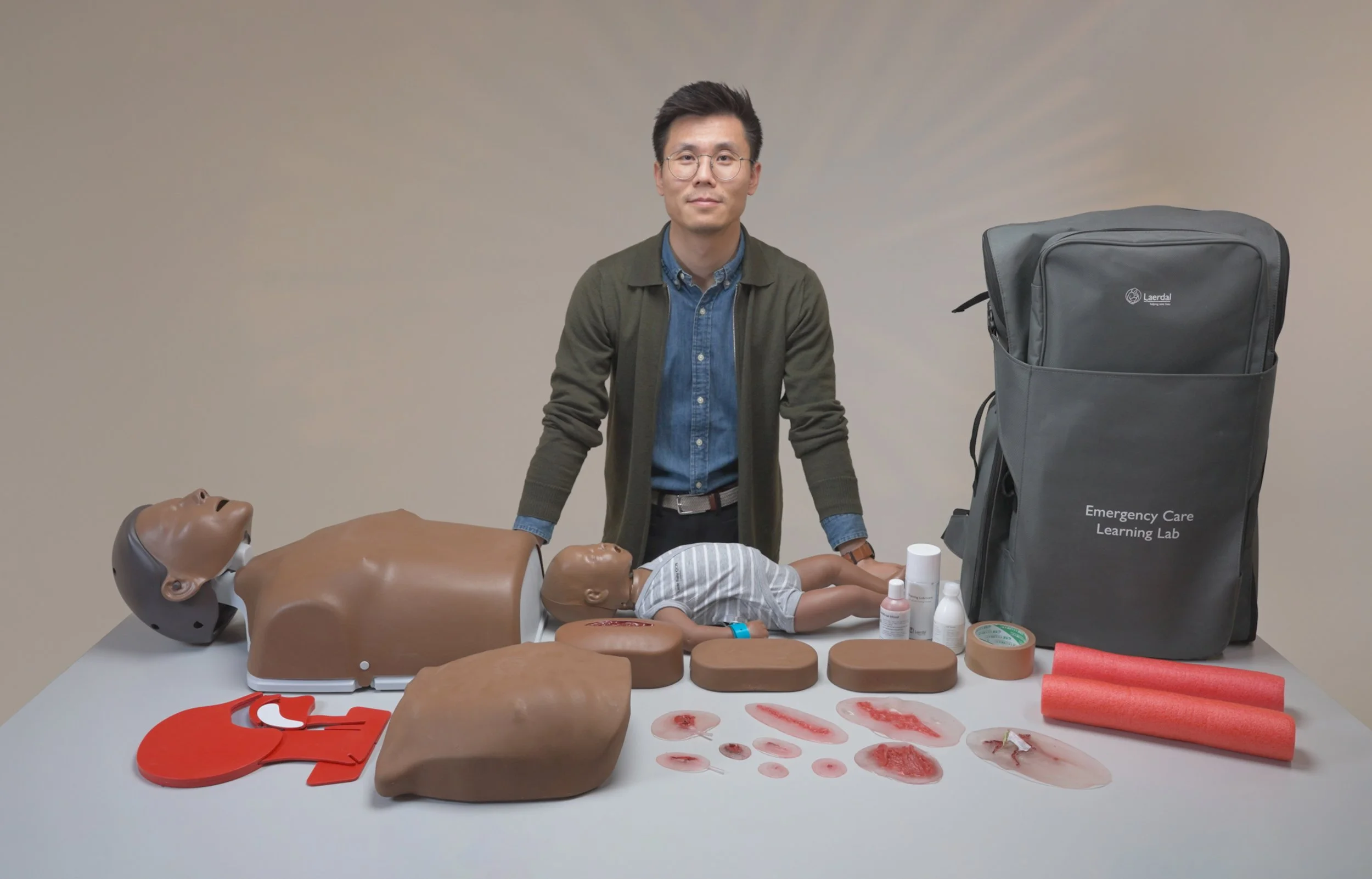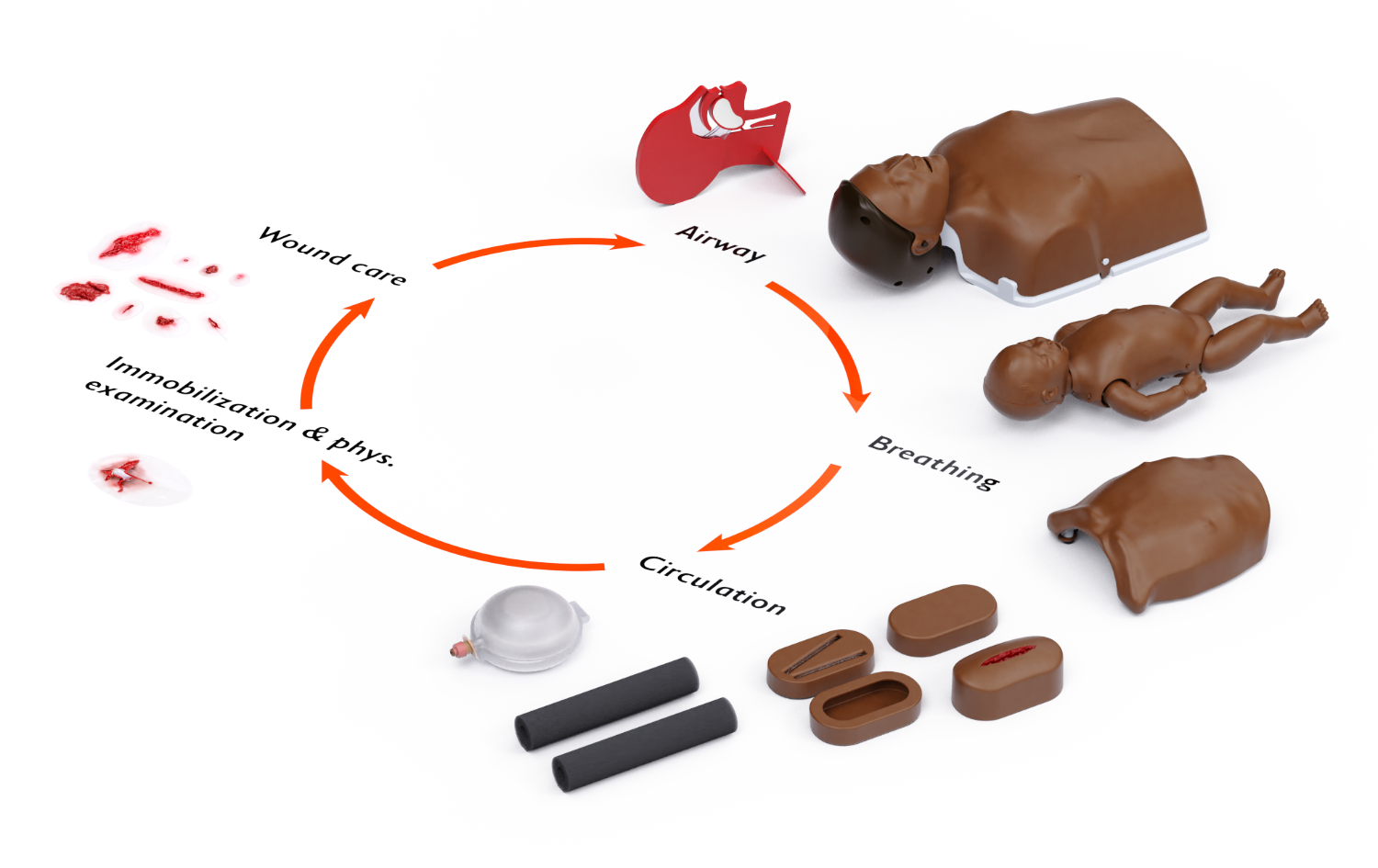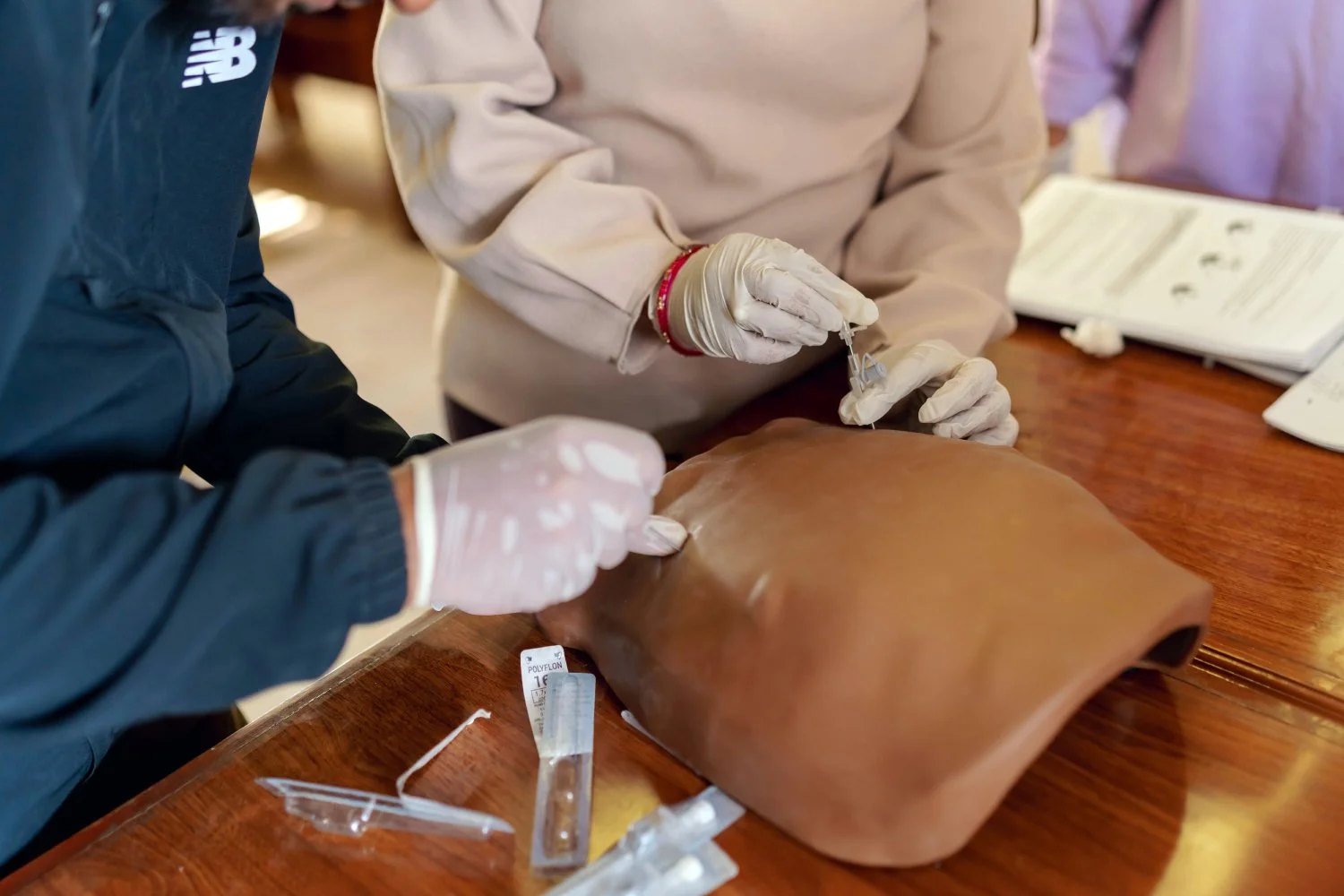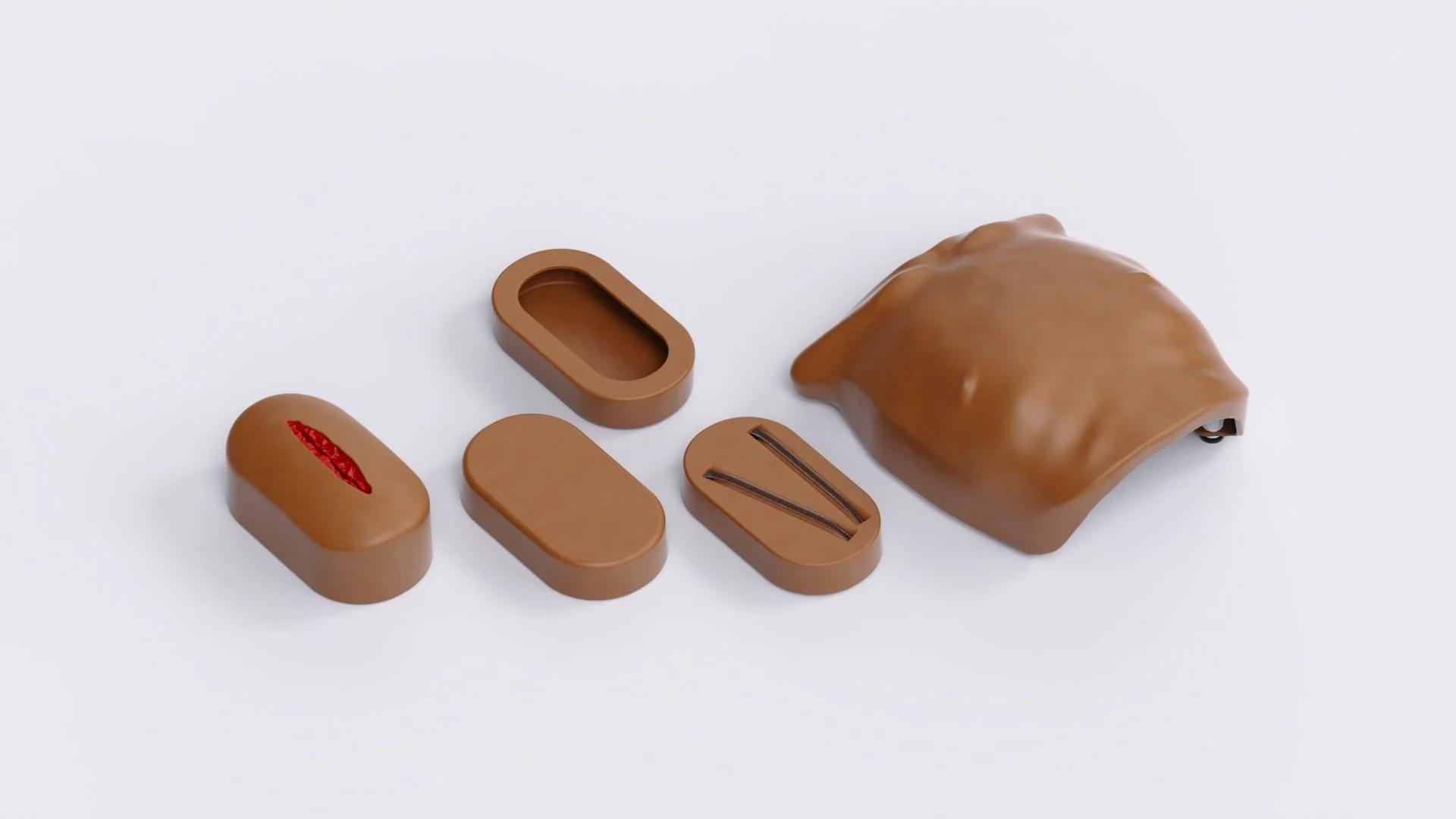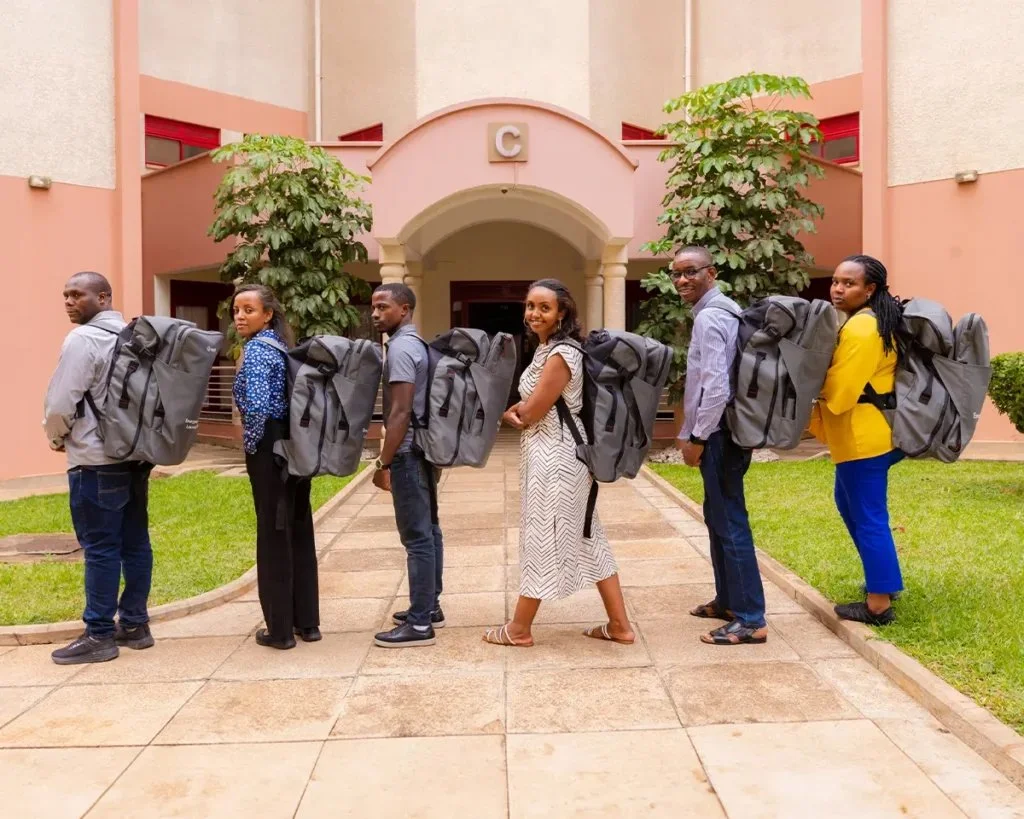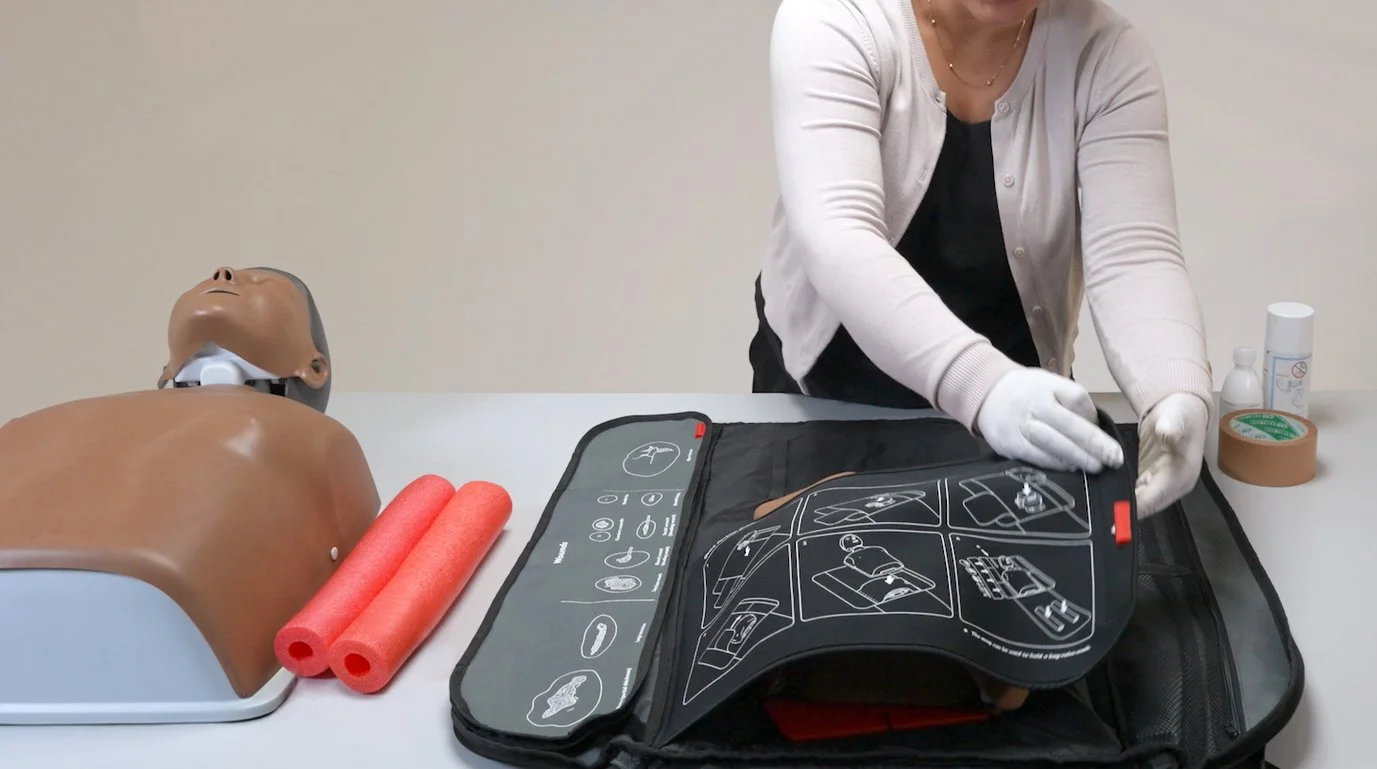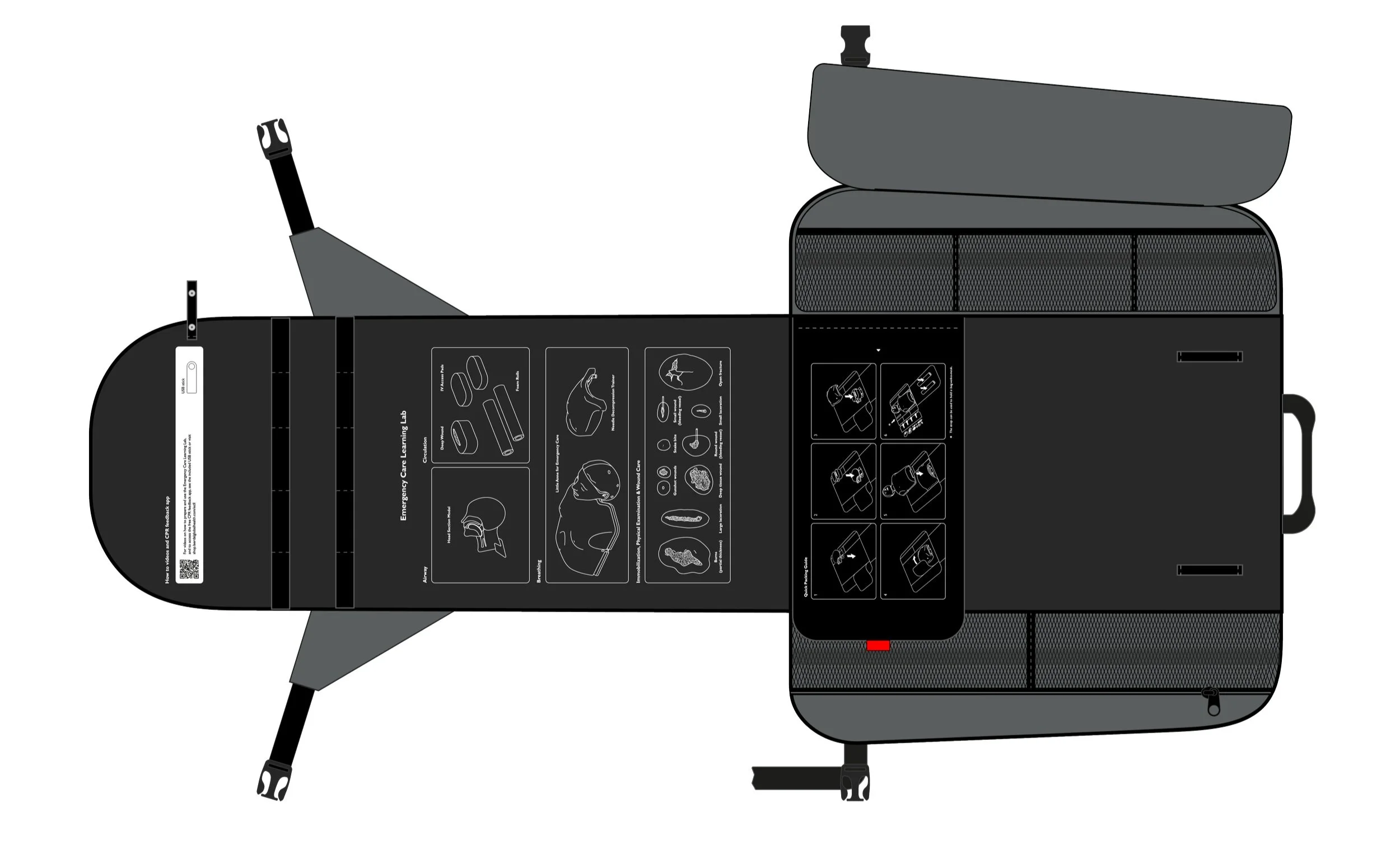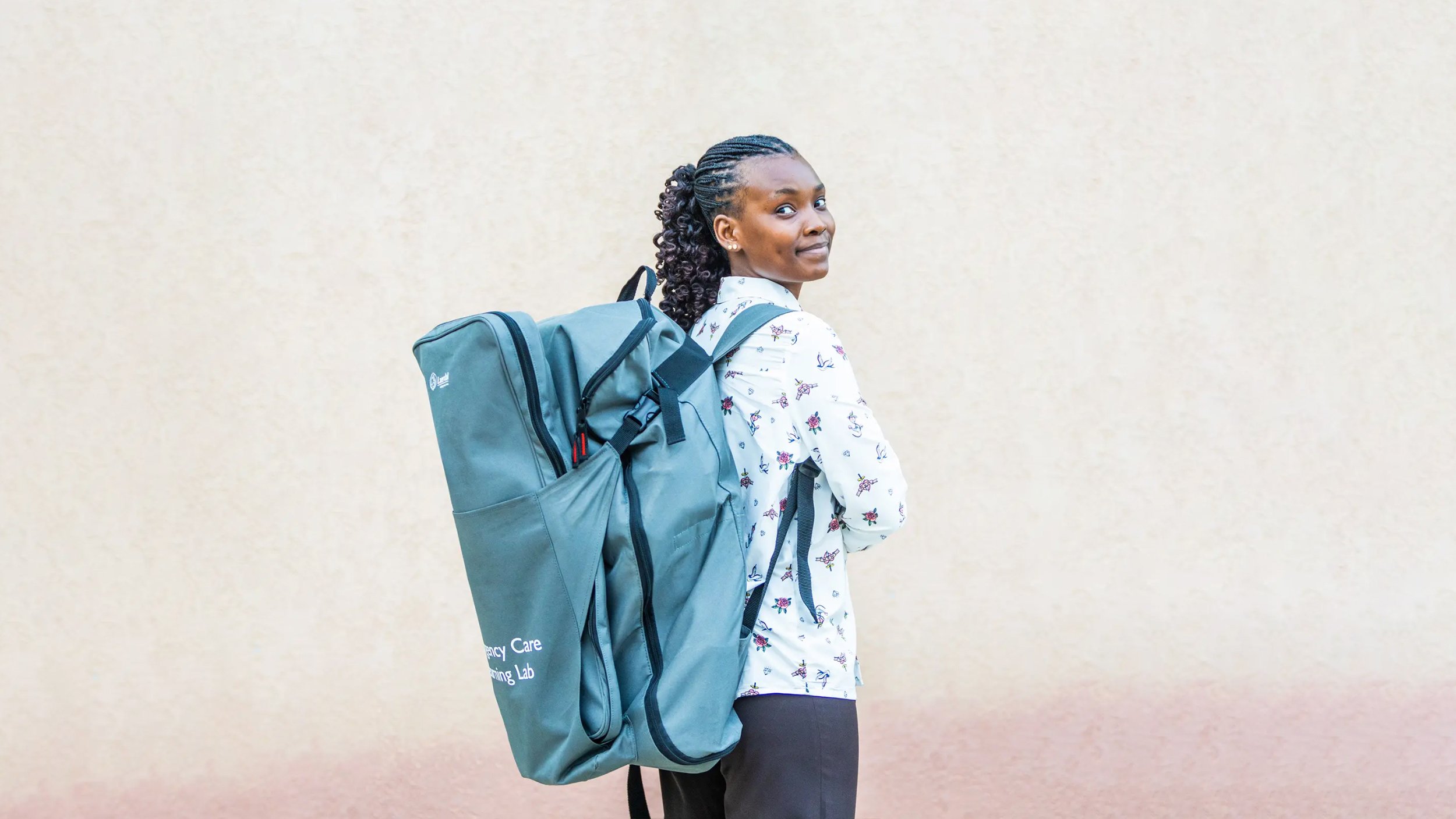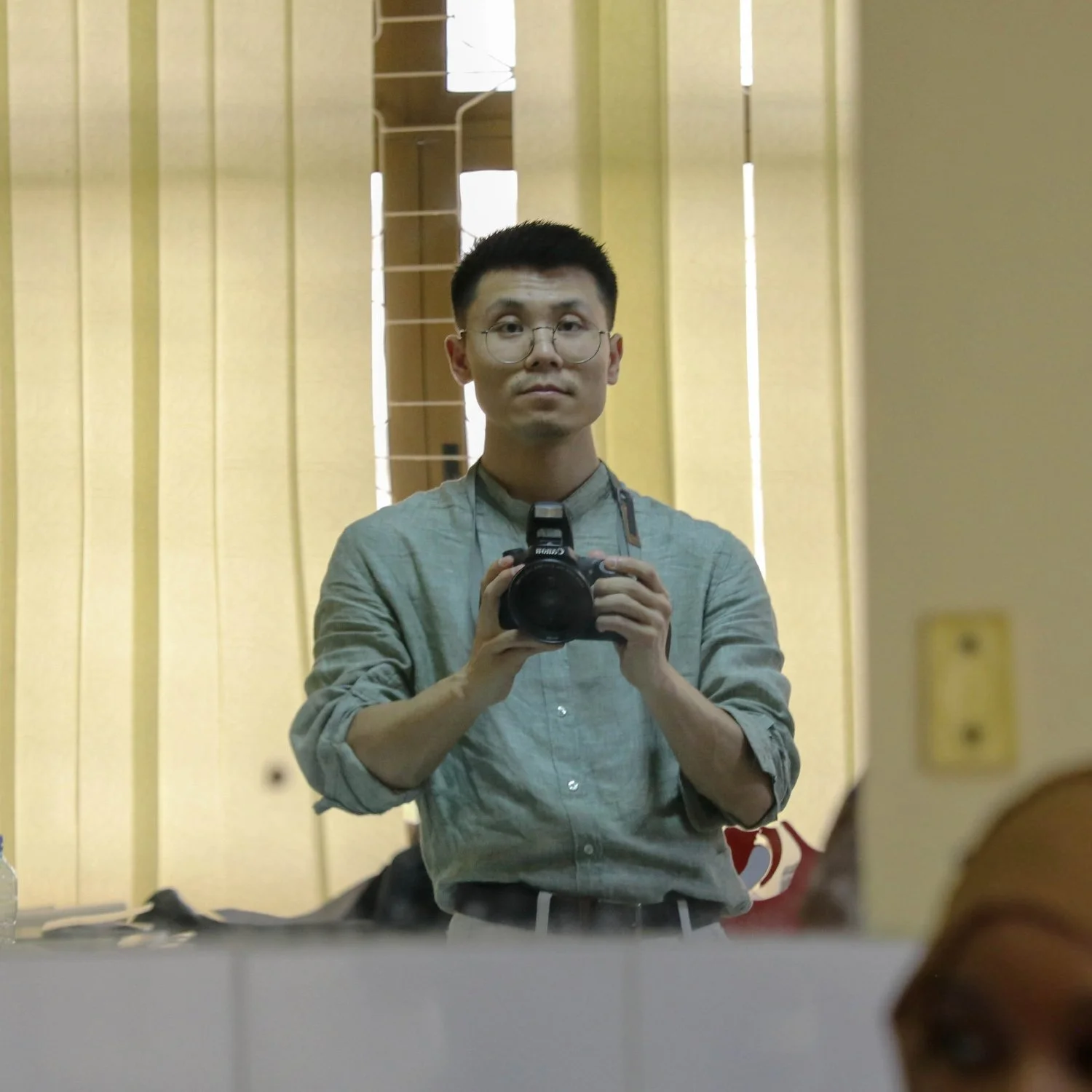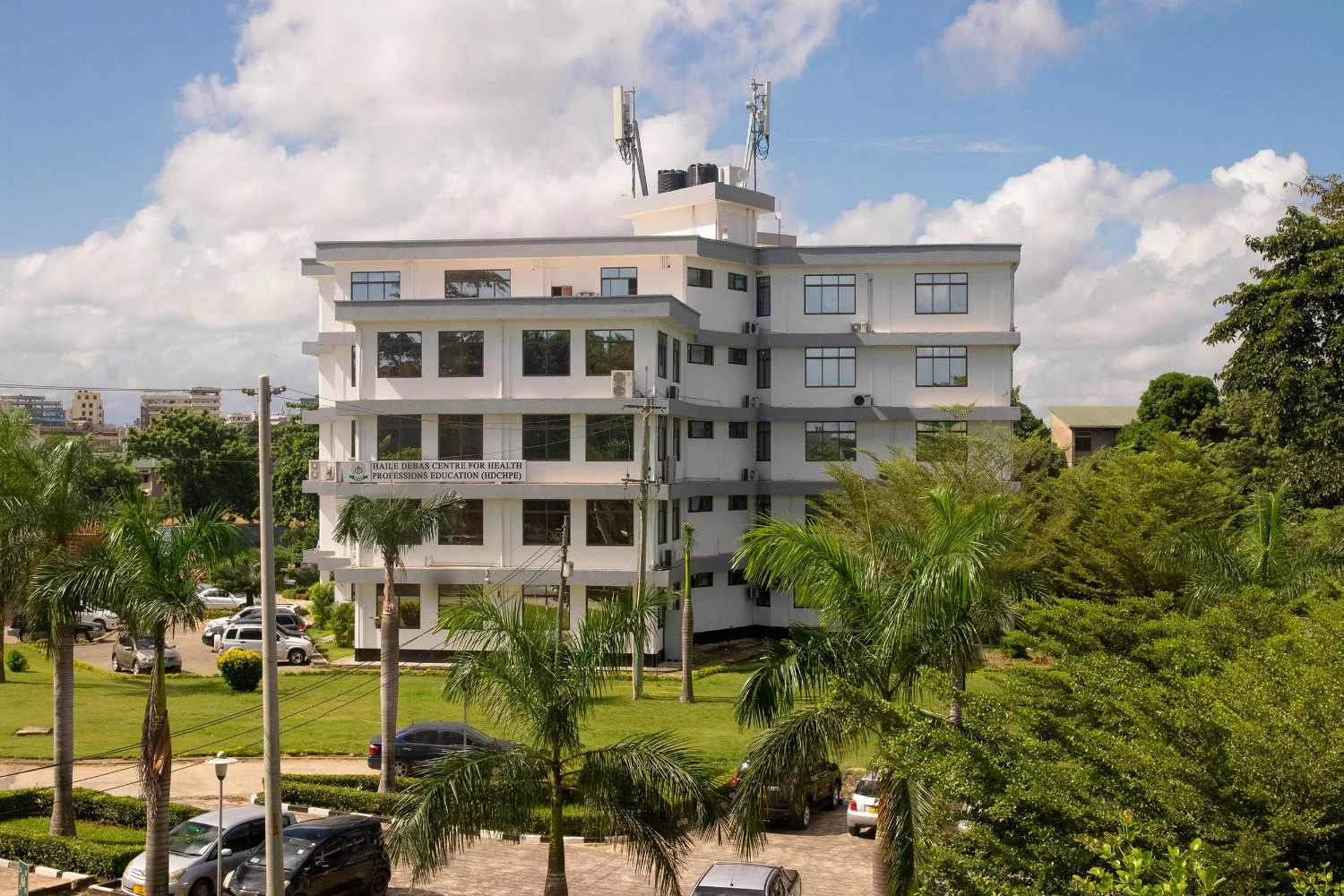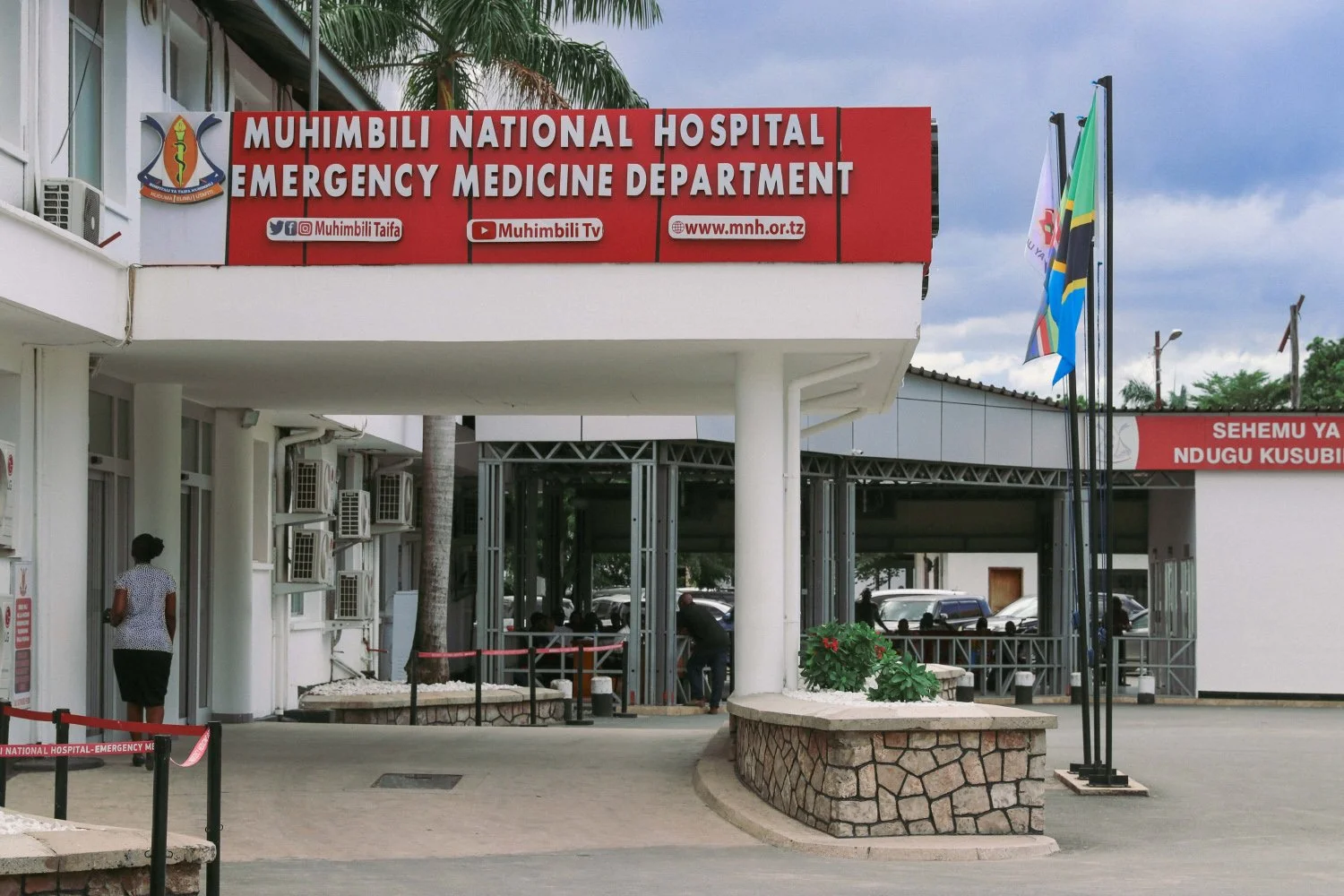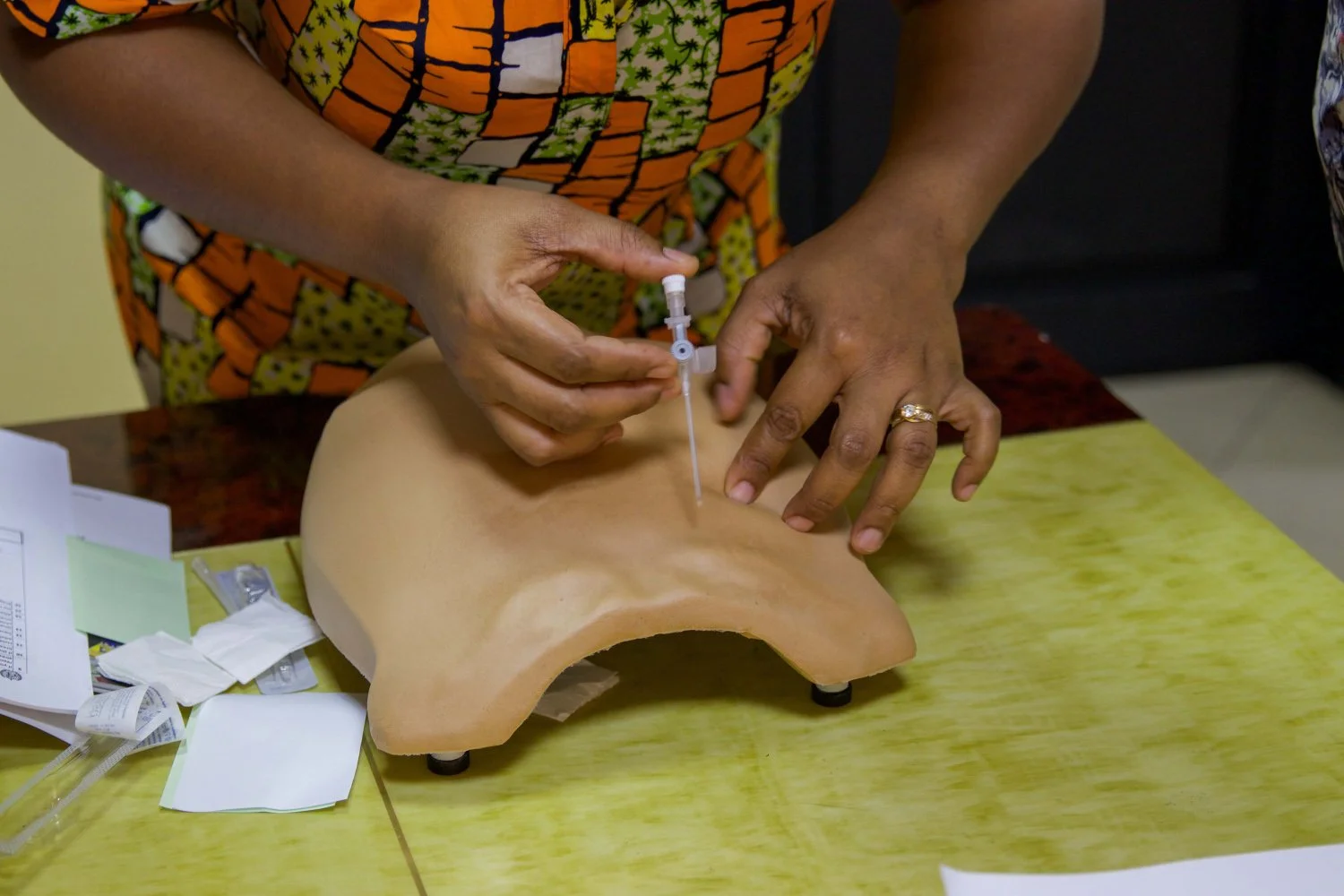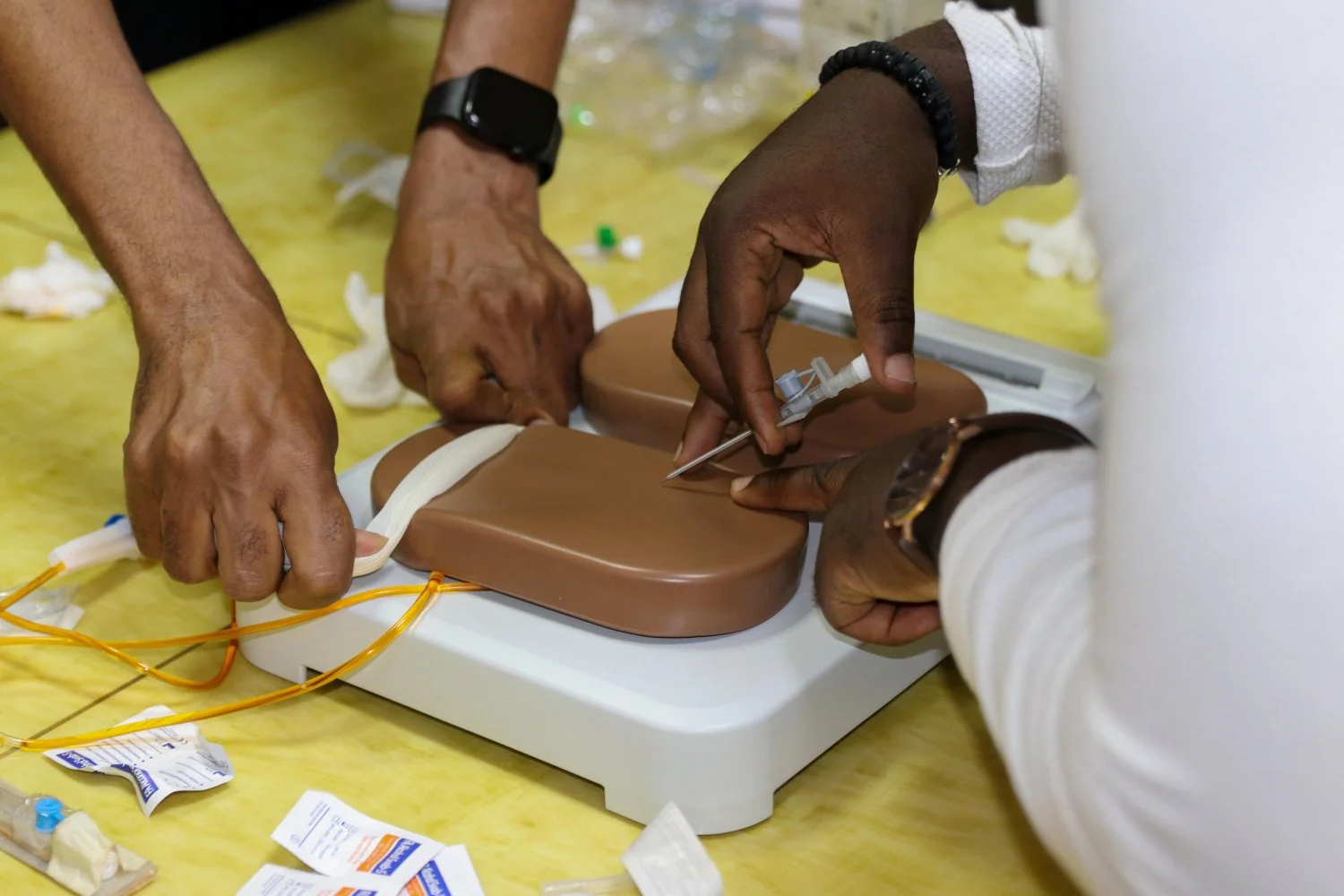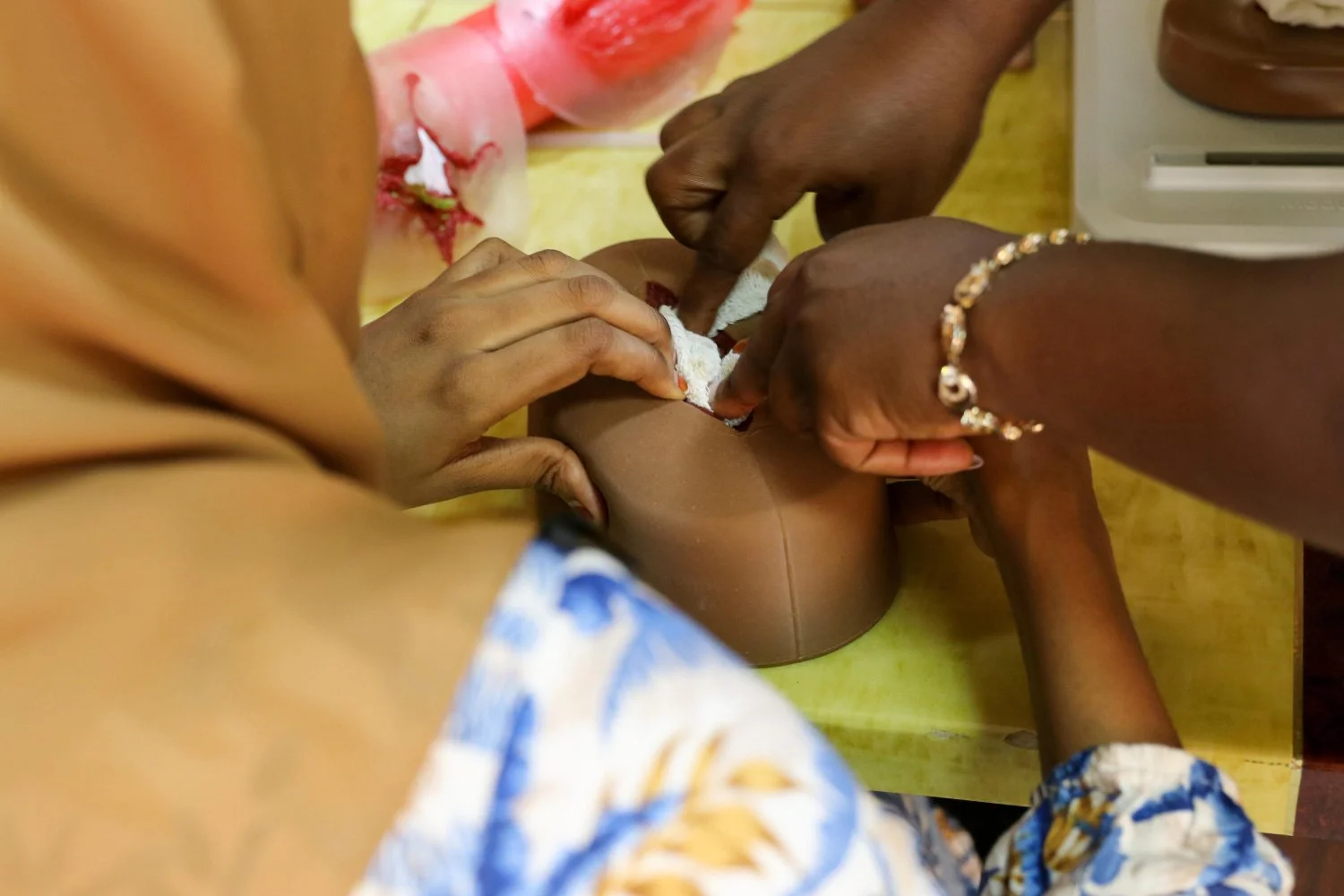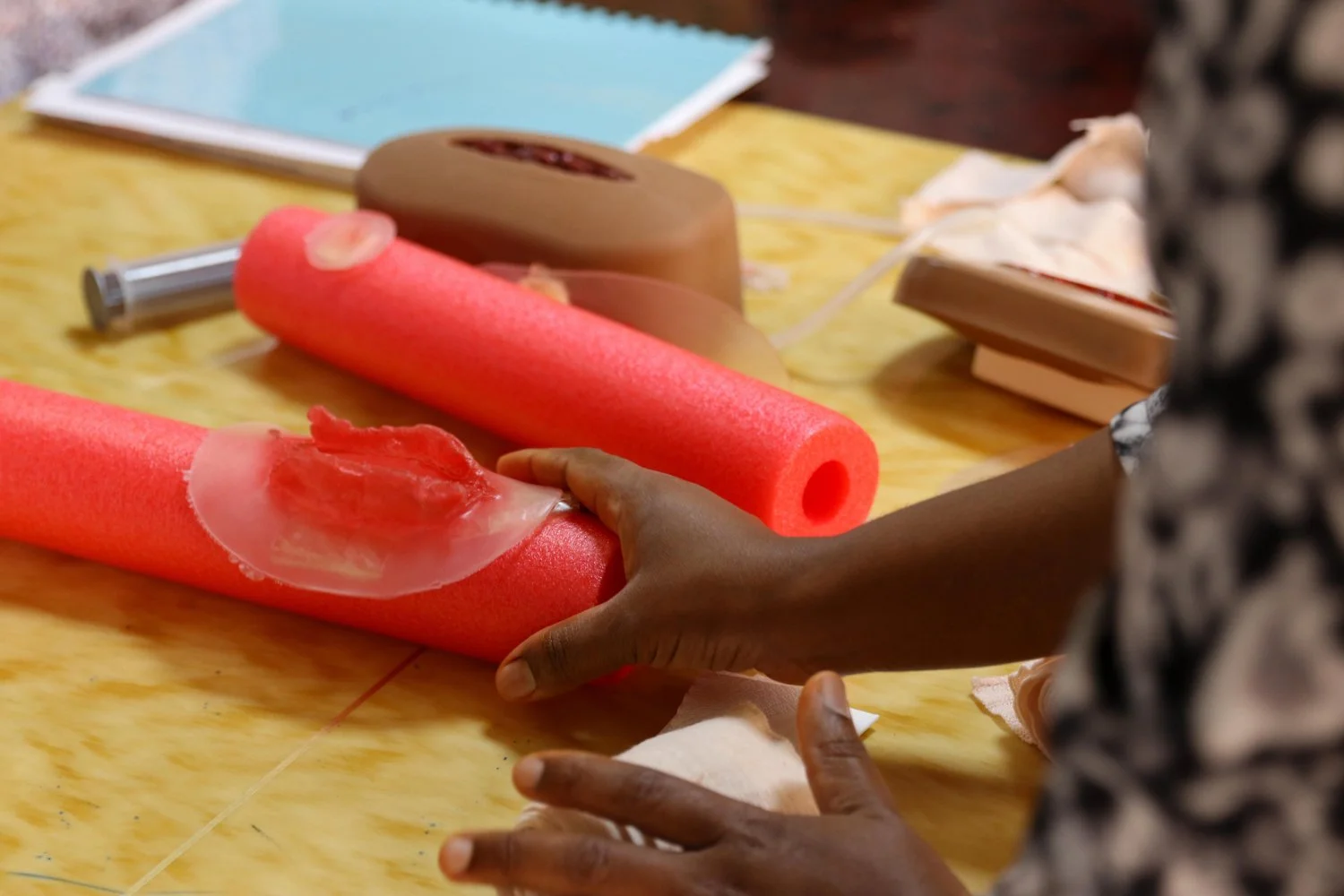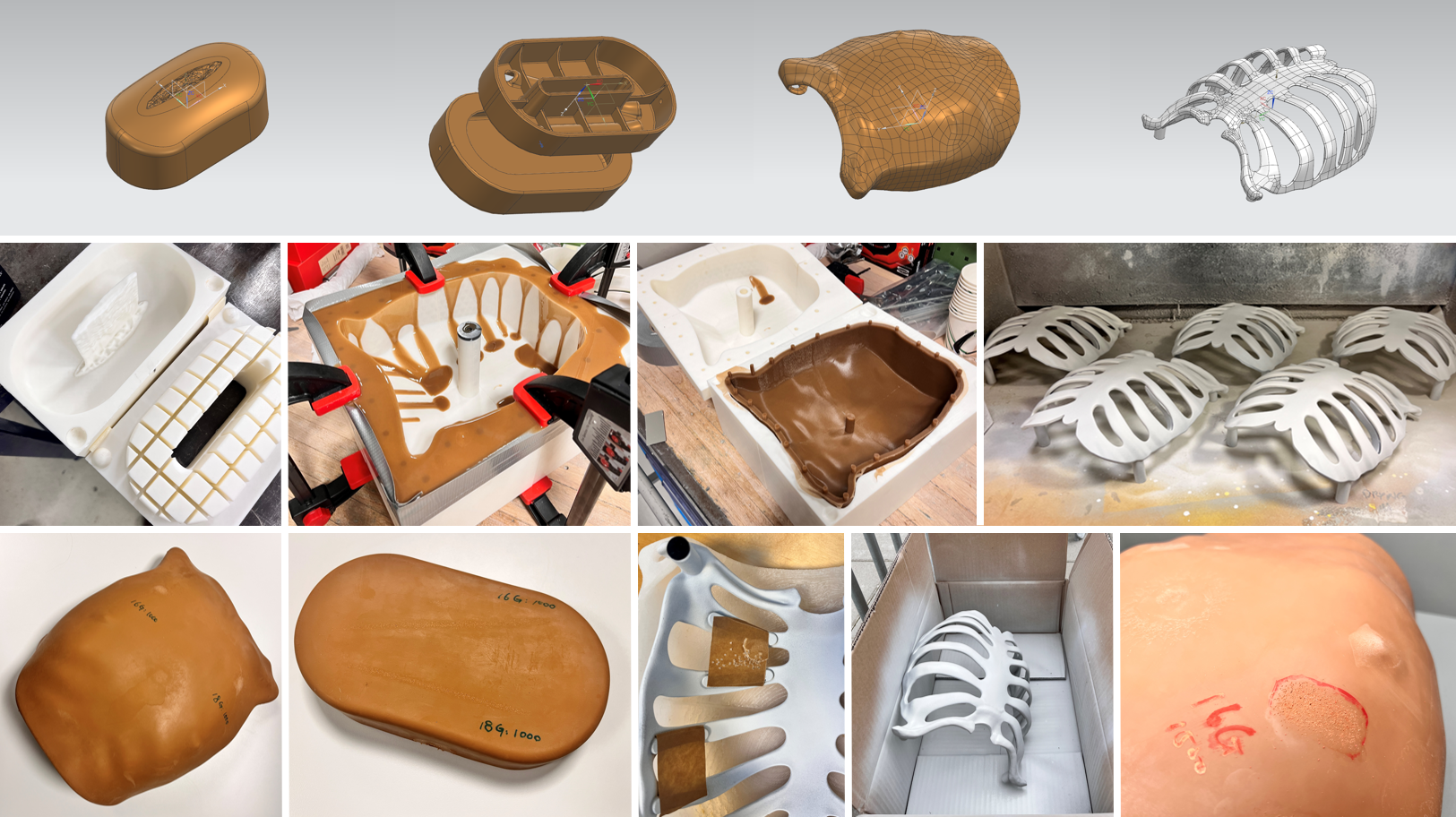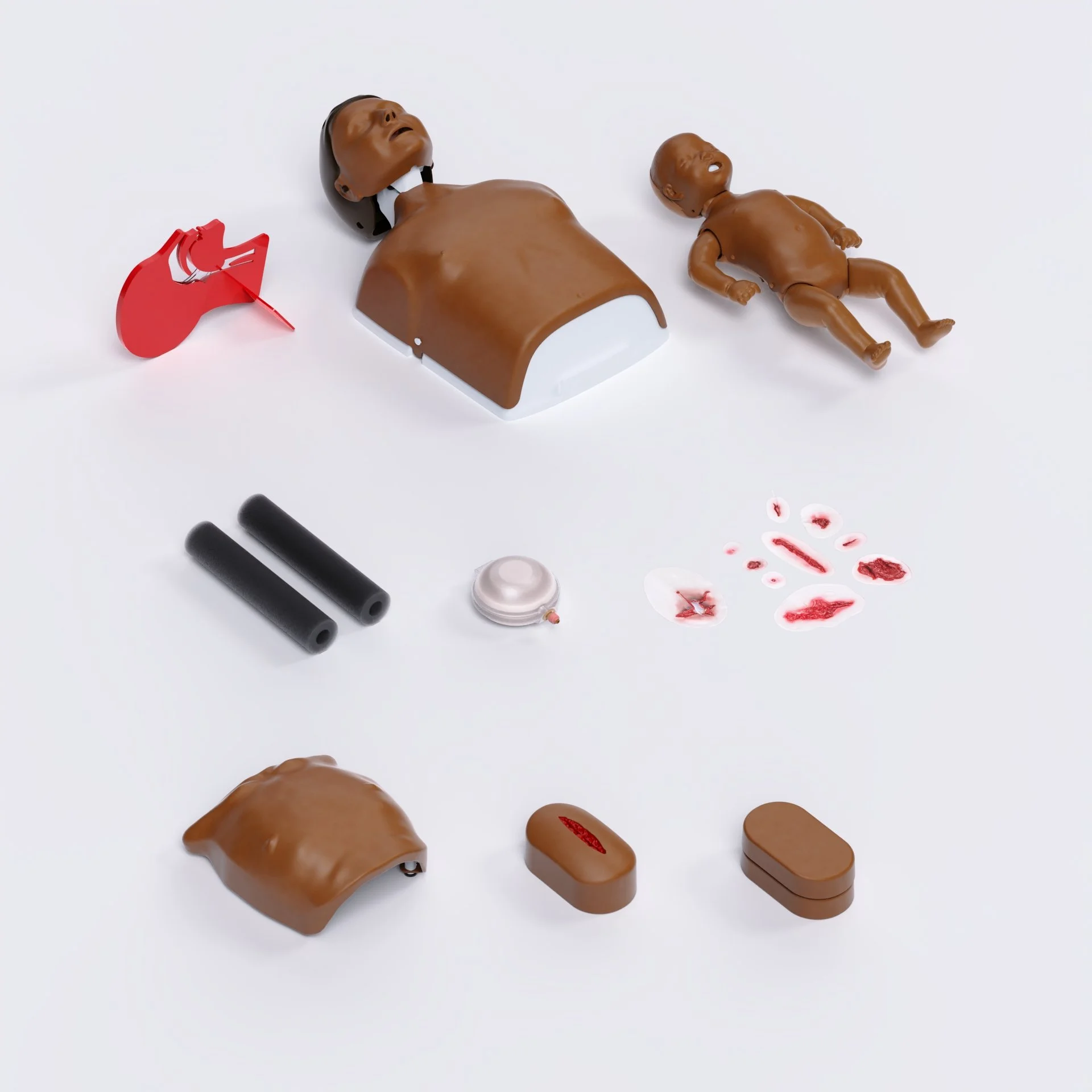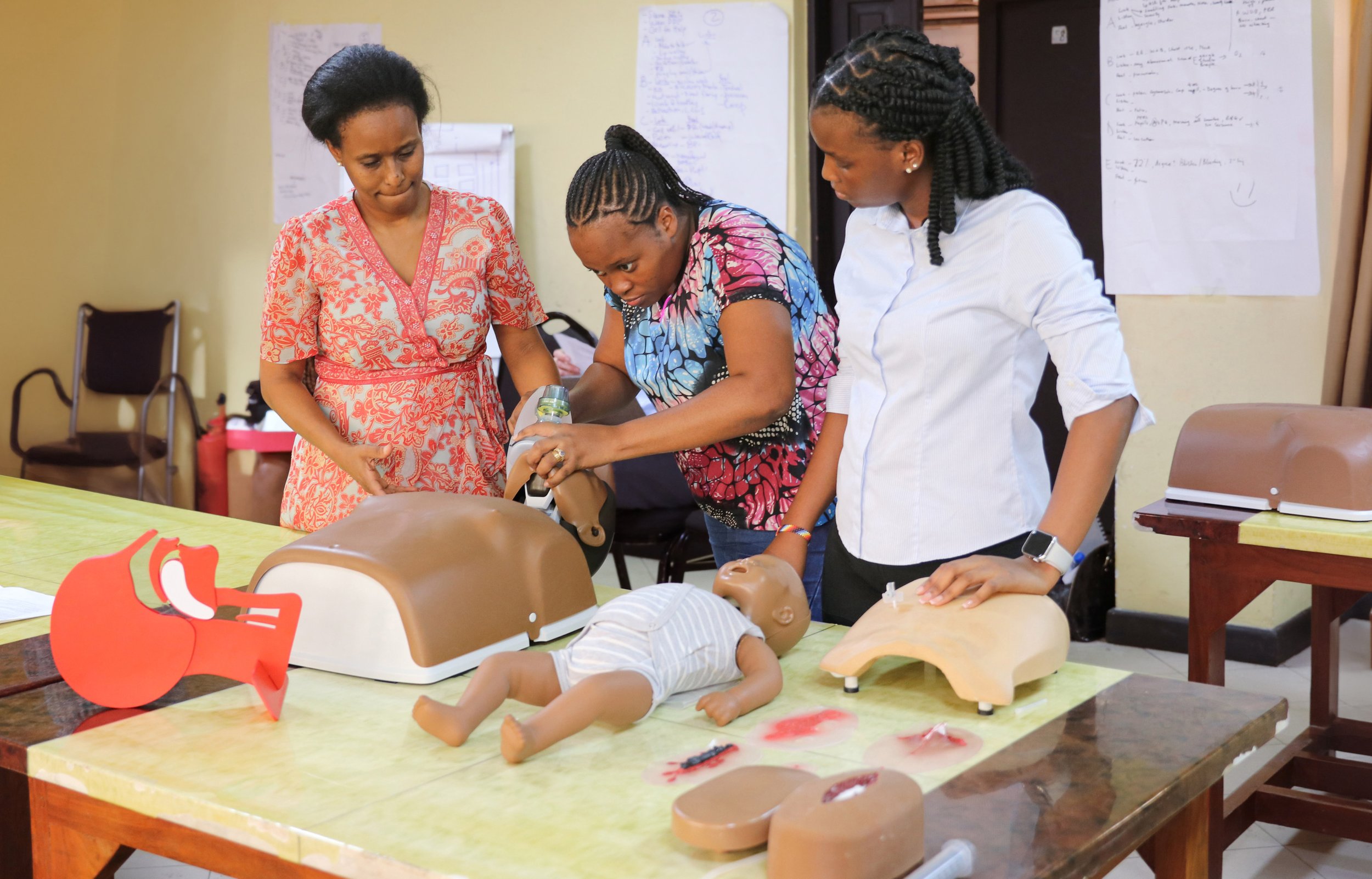
Basic Emergency Care training kit from Laerdal Global Health
Focus on human-centered design, design validation, product development & launch
Available in Q4 2024
_Emergency Care Learning Lab
In collaboration with the World Health Organization (WHO), Laerdal committed to the 25 x 25 campaign — training nurses and midwives in 25 countries by 2025. To scale up the Basic Emergency Care training, we explored, designed, and developed the Emergency Care Learning Lab. This comprehensive kit provides training in Basic Emergency Care (BEC) for adults and children and includes WHO’s Basic Emergency Care and Community First Aid Response Programs.
As the Design Lead for this project, I primarily applied my design skills while also managing the project and keeping stakeholders engaged. I led the entire development process — from concept to delivery — working closely with my small core team to launch within one and a half years. This webpage details the product design and our fast-track, iterative process in partnership with WHO and key stakeholders.
THE CHALLENGE
In low- and middle-income countries, more than half of all deaths could be prevented with timely access to quality emergency care. However, many first-contact healthcare workers face emergencies daily without proper training. To strengthen the Basic Emergency Care (BEC) program and ensure adequate training for these workers, this project overcome several barriers, as outlined below:
-
Equipment Shortage
In low-resource settings for BEC training, there is often a shortage of equipment to support the master trainer. This photo, taken during the BEC field trip in Tanzania (March 2024), shows how the high cost and low availability of equipment have led to centralized training in the country.
-
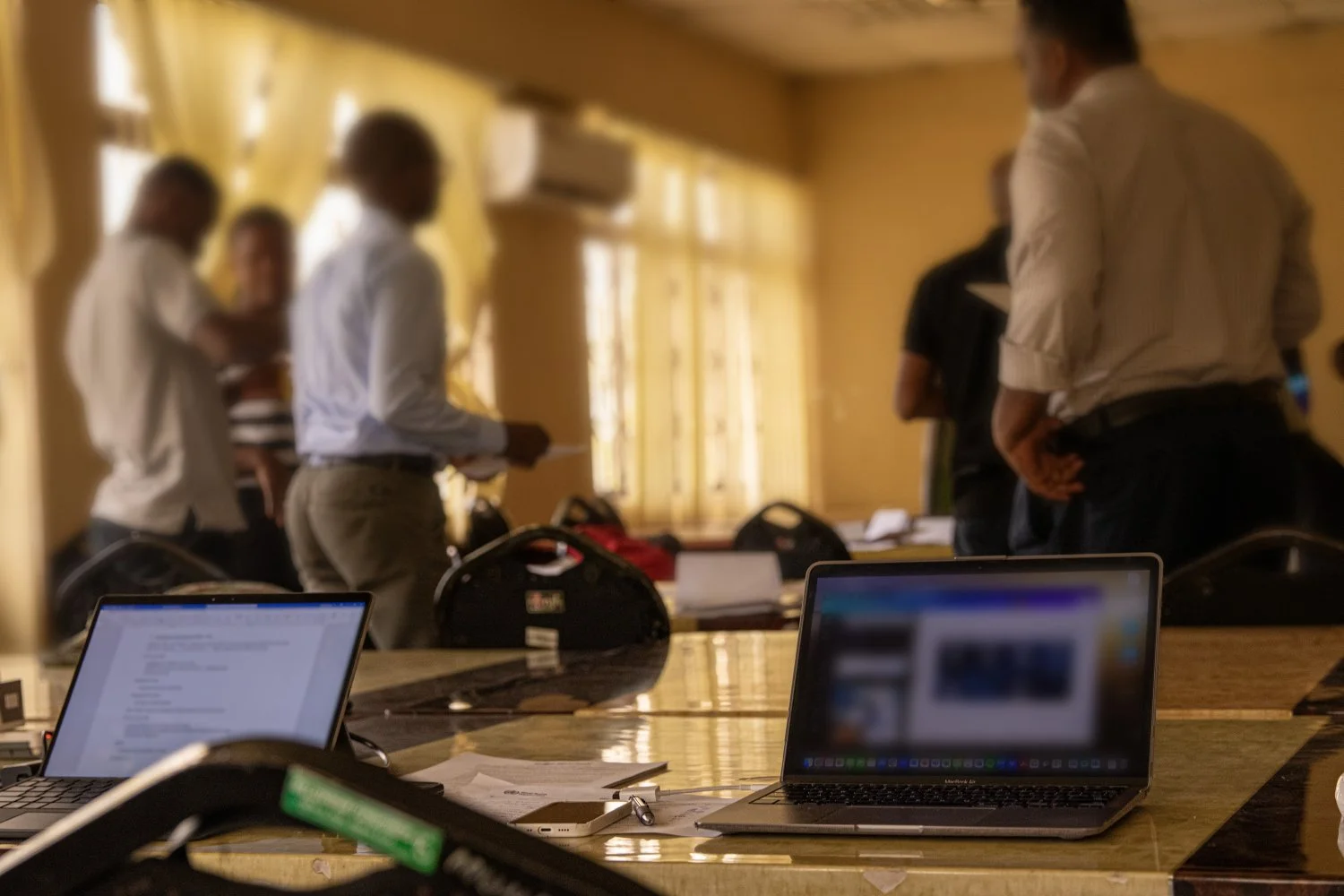
Time Burden
It’s challenging to take health workers out of practice for five days of training. The program involves intense sessions with lectures, hands-on skills, debriefs, and evaluations—making it time-consuming for healthcare workers to attend.
-
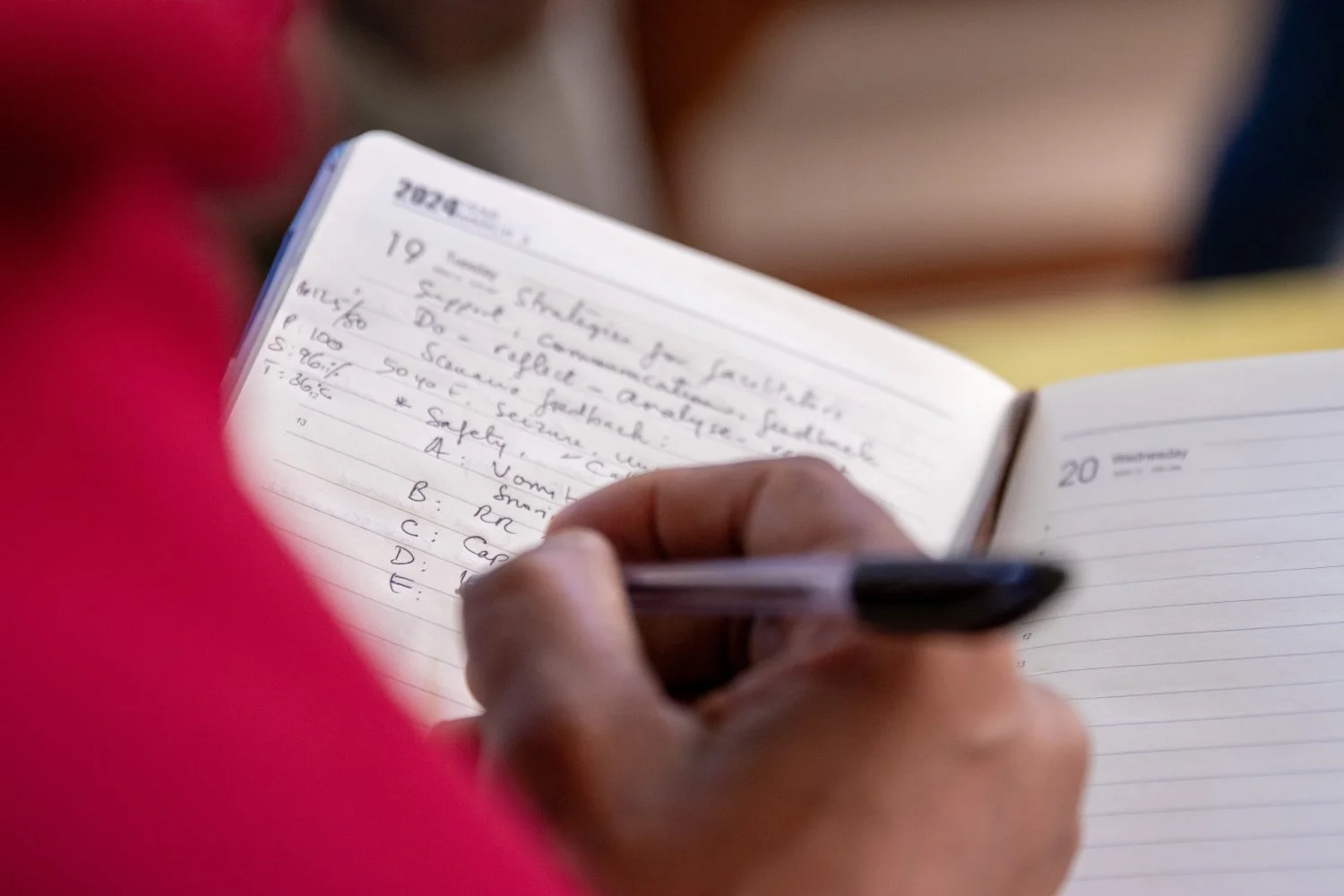
knowledge transfer
Traditional 5-day centralized training makes it hard to train full teams or offer refreshers, leading to skill decay as staff change. This limits long-term impact and knowledge retention.
Introduce Emergency Care Learning Lab
Learn more from this 1:40 min video.
Comprehensive
The Emergency Care Learning Lab follows the BEC course with a structured approach based on A (Airway), B (Breathing), C (Circulation), D (Disability), and Exposure, covering majority practical hands-on skills that learners can be trained.
Durable
Needle Decompression Trainer: Emergency needle decompression practice, pilot test Nepal 2024
One major design effort in this project focuses on developing durable, reusable skill trainers tailored for low- and middle-income settings, where consumables are limited. To support long-term use — especially for practical skills like IV cannulation and needle decompression — we selected high-performance materials such as silicone and recycled thermoplastic elastomers (TPE). These materials offer a realistic tactile feel and potential self-healing properties, helping extend the lifespan of the new skill trainers.
The brand new trainers include: Deep Wound, 2× IV Access Pads, and Needle Decompression Trainer.
Portable
BEC training, pilot test Botswana 2024
The core design effort of this project is to bundle all new skill trainers — mentioned above — with existing Laerdal products, including the Little Anne BEC, Little Baby QCPR, Head Section Model, wounds and other off-the-shelf components, into a single, cohesive learning lab weighing under 9 kg. This all-in-one, portable system is purposefully designed for easy transport, allowing BEC trainers to reach hard-to-access areas by plane, car, or even on foot.
Affordable
It is crucial for distributing the kit to individual hospitals and enabling ongoing refresher trainings in the workplace. With Laerdal Global Health’s commitment to offering the Learning Lab on a not-for-profit basis, cost reduction was a key focus during the design and development phase — ending up to lower costs by up to 90% compared to alternatives on the market.
The kit is available starting from USD 350 (excluding the Little Baby QCPR). Check the price at Emergency Care Learning Lab - Laerdal Global Health
Want to explore detailed features of each skill trainer?
Unlock my journey
Fast-tracked development through close collaboration with WHO
In March 2024, I joined the first hybrid of WHO Basic Emergency Care Course at Muhimbili National Hospital. In addition to supporting the BEC training facilitated by WHO, the most valuable takeaway was gathering user insights on the lastest Emergency Care Learning Lab (ECLL) from both new BEC trainers and learners. This experience broadened my perspective on training environments and highlighted opportunities to enhance our solution to better support the mastery of BEC practical skills through ECLL.
Check more details from the post: Working with WHO to improve access to Basic Emergency Care training | Laerdal Global Health
WHO's Basic Emergency Care Course Pilot Test
Dar es Salaam, Tanzania
Muhimbili National Hospital
18-21/03/2024
Muhimbili National Hospital, Dar er Salaam
Emergency Medicine Department
BEC Practical Skill Training
2nd Rev prototype - Needle Decompression Trainer
BEC Practical Skill Training
Laerdal Modular Skill Trainer - IV pads
BEC Practical Skill Training
2nd Rev prototype - Silicone Deep Wound
BEC Practical Skill Training
Foam Rolls - Wound care
Product Development
Back from the field trip, the design process kicked into high gear — moving swiftly from development to industrialization. Alongside 3D modeling for new branded products and portable backpacks, injection-molded part like TPE skins were tested with over 1,000 punctures.
Visit Manufacturer and Supplier - Suzhou, China
08/2024
A two-week onsite work at Laerdal’s manufacturing facility in Suzhou, China further accelerated industrialization and design verification, helping shape a durable, market-ready solution through close teamwork.
Help Save More Lives
Help Save More Lives
More than 50 pre-production kits have been used across 15+ countries even before the official release. And this is just the beginning of the impact…

